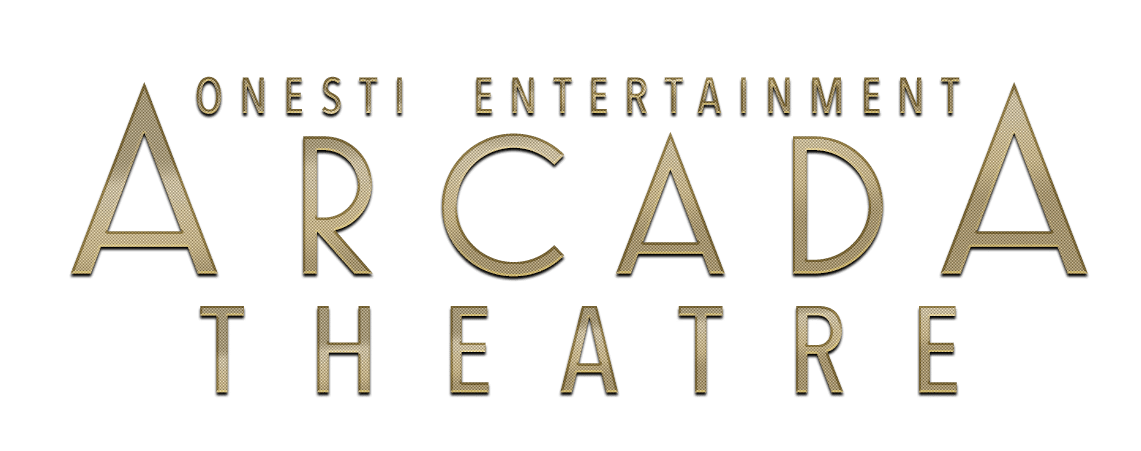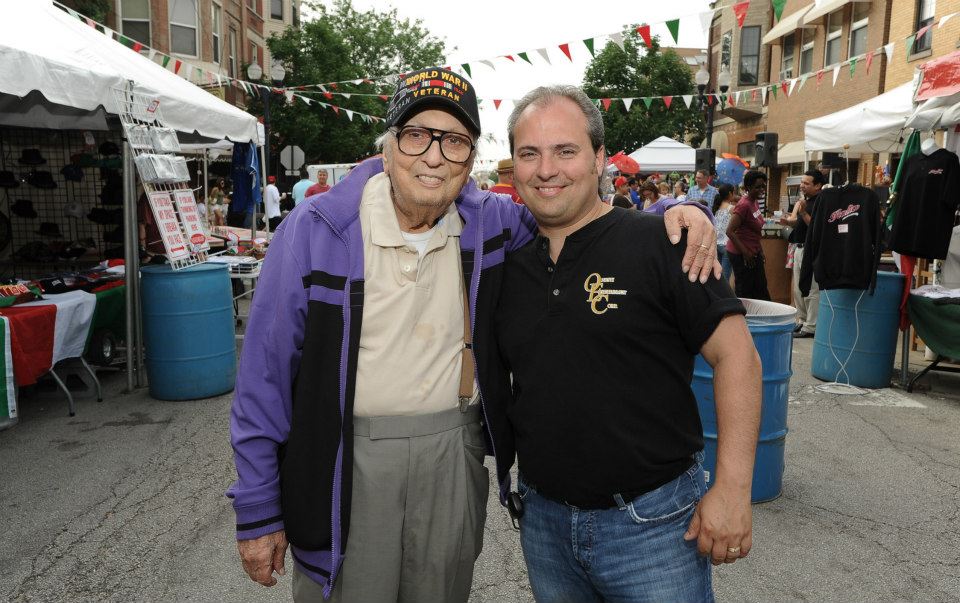Ron Onesti: A Musical Salute to our Military Heroes
I am the son of a proud WWII veteran. Squad Leader Sgt. Albert J. Onesti, #36682557, Unites States Army, 179th Infantry, 45th Division “Thunderbirds” with battles in Rome, Southern France, Anzio. My hero.
For the first ten years of my life, I lived in the building that my grandparents settled in upon their emigration from Italy in 1911. It was also the home where my dad was born, in the Taylor Street neighborhood in Chicago where he and a bunch of his eighteen year-old buddies were drafted into military service. That was twenty years before I came into this world, but even then there were still many windows sporting those rectangular service flags, with red trim, white field and blue star in the middle, representing the soldier from that household in battle. Many had a gold star in the middle, representing a loved one killed in battle. Those affected me the most, and it seemed we visited those gold-star houses more often than any of the blue-star homes. We always brought pots of homemade food for the families living there.
I can remember asking my dad why there were gold stars and blue stars. He would just tell me that the ones with the gold stars in the window were the homes of very special heroes. It was years before I found out the gold stars represented the home of a fallen soldier.
We all have our memories of our parents when we were growing up. Mine of my dad really are three things…his tailor shop, the fact that he was the ultimate Cub fan (my folks’ honeymoon was a pair of box seats at Wrigley Field), and his war stories.
Many of the stories centered on his “foxhole” experiences in battle. Constantly dodging bullets and mortars and trying to catch ten minutes of sleep during the non-stop moans of wounded comrades was his way of life for three years, tough for an eighteen year old from Chicago’s Little Italy. He literally spent weeks standing in the same stench-filled water, causing his infamous ‘trench feet” that pulled him out of battle for a month. Upon his return to “the front”, he found that most of his company was wiped out during an invasion. Trench feet translated into a blessing in disguise.
“I decided that I wasn’t going home,” he would tell me. “With death all around me, I didn’t think there was a chance I would make it. It was at that moment, I became fearless and that’s what got me through it all,” he would say.
There was the time his buddy Mike from the neighborhood got scared and ran out of the foxhole trying to escape the exchange of gunfire. “His legs were torn up, I jumped out of my foxhole and dragged him about fifty feet into another foxhole. I wrapped him in my undershirt and made a tourniquet. I waited with him until the medics came, then we had to move out. A couple of weeks later, we happened upon a M*A*S*H unit, and he was there! We hugged each other and cried! He needed over seven hundred stitches, but he made it! He went home the very next day!” my dad would tell me.
As I grew older, his stories became more valuable, more important, and more real. I lived in a very interesting household because my mom, Gabriella, who my dad met in the war, was from Florence, Italy. It was a cute love story, as they separated at the war’s end, but kept in touch and came back together almost twenty years later. They were married in 1961, and I came into the picture about a year later.
Everything was cool until the topic of Mussolini came up. The Italian dictator was an ally of Hitler, and of course, an enemy of America. But her perspective was of particular interest, as she lived through it on the “other side” of the fence.
“What many Americans don’t realize is that Mussolini helped Italy grow in a time when we were at our lowest,” she would say. He really tried to make Italy a great world power, building factories, bridges and great monuments. We lived it, and we saw it.” She would continue, “He had to be an ally of Hitler, or Hitler would have destroyed Italy. Did you know that Mussolini and Italy saved more Jews from Hitler than any other ethnic group in World War II? They hid many Jews in the mountain towns and provided false documents. That is the stuff you DON’T hear about!”
My dad would put Mussolini on the same level as Hitler. “He was still a dictator,” he would say. “He killed a lot of our boys in battle, and I cannot forgive him for that.” They both had their valid sides. Nonetheless, there were many kitchen-table discussions on the topic, most resulting in short dinners and my dad sleeping on the couch.
Still, these classic accounts gave me a respect for our military and our military history that I cherish to this day. And as I got more and more into music, my appreciation for the red, white and blue and those who defended it got stronger. It all started as I would watch the black-and-white classic film, “Yankee Doodle Dandy”, starring James Cagney as that Broadway impresario, George M. Cohan. The film tied show business with American pride, and is probably a big reason why I do what I do today. It exposed me to the song of the same name as the film, a tune about as American as it gets. It also educated me about another Cohan classic, the World War I fight song, “You’re A Grand Old Flag”. Cohan originally wrote it in 1906 after an encounter with a Civil War Veteran of the Battle of Gettysburg who referred to his own war souvenir of a tattered American flag as a “Grand Old Rag”.
Then, with my appreciation for all things WWII, I fell in love with the big band sounds of Glenn Miller, Benny Goodman, The Andrews Sisters and the “Stage Door Canteen”. I still hold big band shows to this day featuring current incarnations of those acts. Ah, those harmonies and the sounds of the Clarinet. There isn’t a time that “Moonlight Serenade” doesn’t bring tears to my eyes.
Being a child of the early sixties, the Viet Nam War was the first military activity that I experienced first-hand on television. The Animals’ hits “House Of The Rising Sun” and “We Gotta Get Out Of This Place” were two Viet Nam War anthems, and the reason I hired Eric Burdon of The Animals many times over the years because of that memory. And Jimi Hendrix’s guitar version of The Star Spangled Banner? Come on!
As I got into my favorite musical era, the Classic Rock of the Seventies, Grand Funk Railroad’s “We’re An American Band” and “I’m Your Captain: Closer To Home” hits home hard every time I do a show with those guys. The Eighties brought Bruce Springsteen and “Born In The USA” and John “Cougar” Mellencamp’s “R.O.C.K. In The USA”. I haven’t done shows with those guys yet, but their songs helped foster the Americana approach I have had with all my shows. I DID do a show with James Brown in 1985, his “Livin’ In America” tour! That was a Red, White and Blue spectacle I have rarely seen before, or since!
When Country Music resurged as a major force in entertainment, the military and pro-America flavor of many of the songs encouraged me to produce a bunch of shows that promoted that genre of music. Major military musical flag-wavers like Toby Keith, Billy Ray Cyrus, Brad Paisley and a host of others really focused the country in a way musically that hadn’t been done since the forties!
Yes, music and the military has gone hand in hand for me since a golf-club sporting, long nosed showman by the name of Bob Hope hosted variety shows for the troops on TV when I was a kid on Taylor Street. Every one of these songs remind me of the memory of my fallen soldier, my dad. Here’s to the heroes on the battle fields as well as those on the stages who honor them. I salute you all and thank you. Regardless of all the politics that surround us, I believe it will be the music that will get us through it all.

